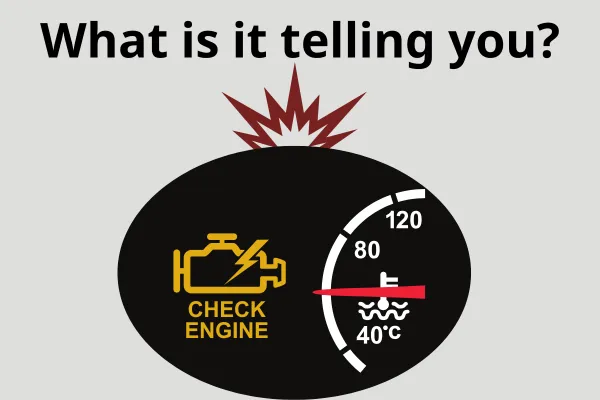
What Your Check Engine Light Really Means
That little orange light on your dash can feel like a mystery — or a wallet-drainer. But it doesn’t always mean something catastrophic. Here’s what that check engine light is really trying to tell you.

It’s Not Always an Emergency — But It Is a Warning
The check engine light is your car’s way of saying, “Something’s off.”
It could be as simple as a loose gas cap — or as serious as a misfiring cylinder.
Common reasons the light turns on:
Loose or damaged gas cap
Oxygen sensor failure
Catalytic converter issues
Spark plug or coil problems
Mass air flow sensor fault
Some issues are quick fixes. Others can lead to serious damage if ignored.
What to Do When It Comes On
Don’t panic — but don’t ignore it either.
Here’s what to do:
Check your gas cap. If it’s loose, tighten it and drive a bit — the light may turn off.
Notice how your car feels. Is it driving rougher than usual? Hearing odd sounds? Take note.
Schedule a diagnostic scan. This reveals the exact code triggering the light.
At Independent Vehicle Service, we use advanced diagnostic tools to pinpoint the real issue — not just guess based on symptoms.

Why Fast Diagnostics Matter
Ignoring the check engine light can lead to:
Worsening engine damage
Lower fuel economy
Failed emissions tests
Higher repair costs
We don’t throw parts at the problem. We investigate. Our technicians specialize in BMW, Volvo, Toyota, VW, and more — so we know how to decode your car’s language.
FAQ: Can I keep driving with the check engine light on?
A: If it’s steady and your car drives normally, it’s not urgent — but you should still get it checked soon. If it’s blinking, pull over and call us.
Let’s Find Out What Your Car Is Telling You
If your check engine light is on, even if your car feels fine — don’t wait. Call Independent Vehicle Service at 505-247-9771 and we’ll get to the bottom of it.
Peace of mind starts with answers.
